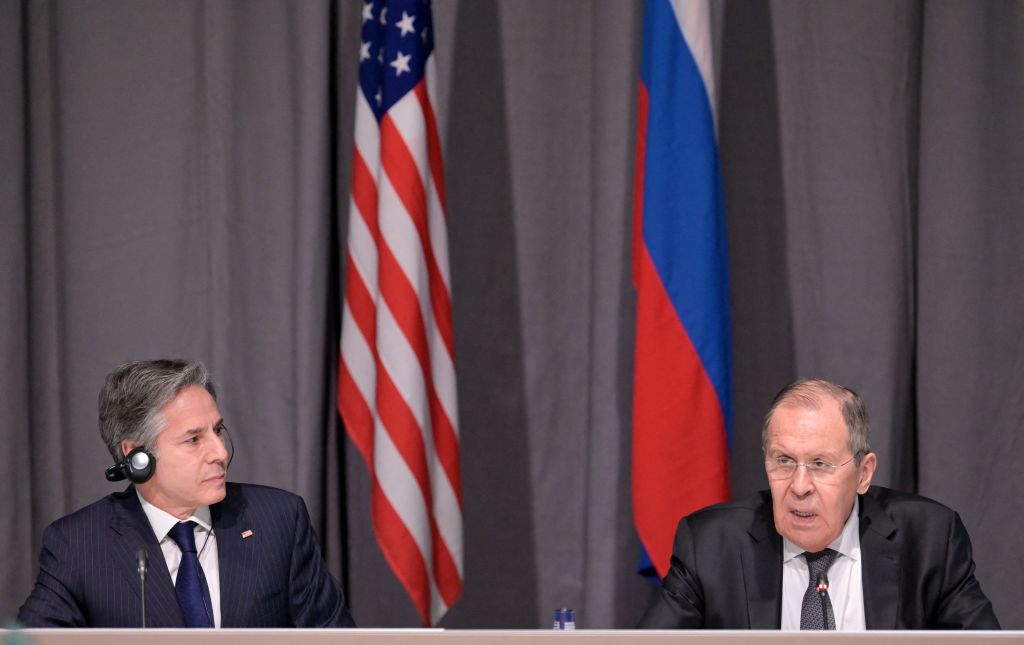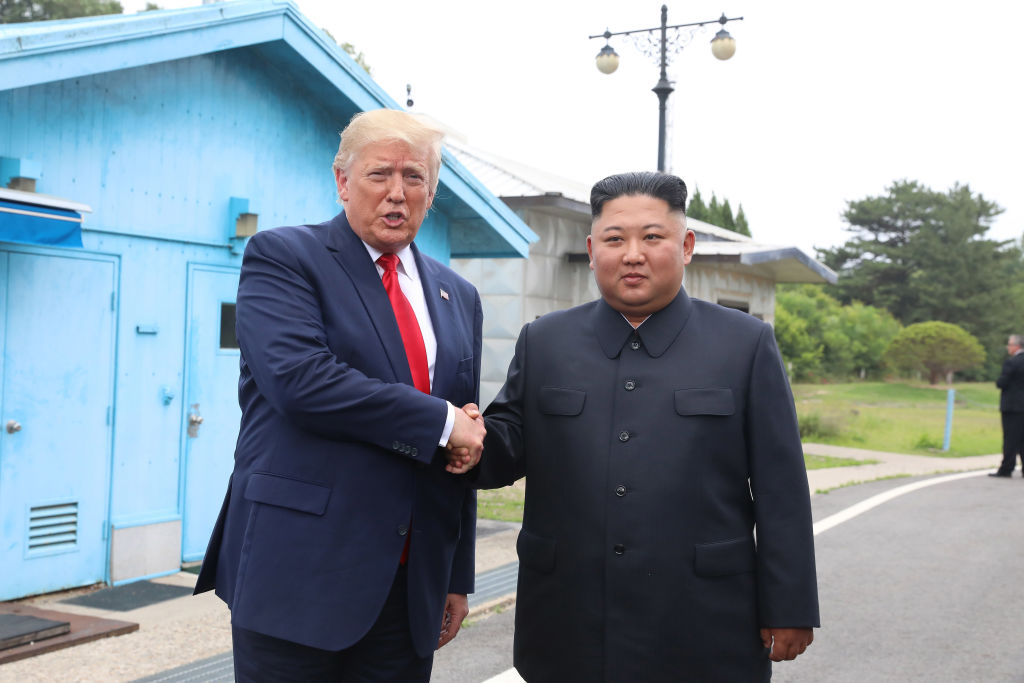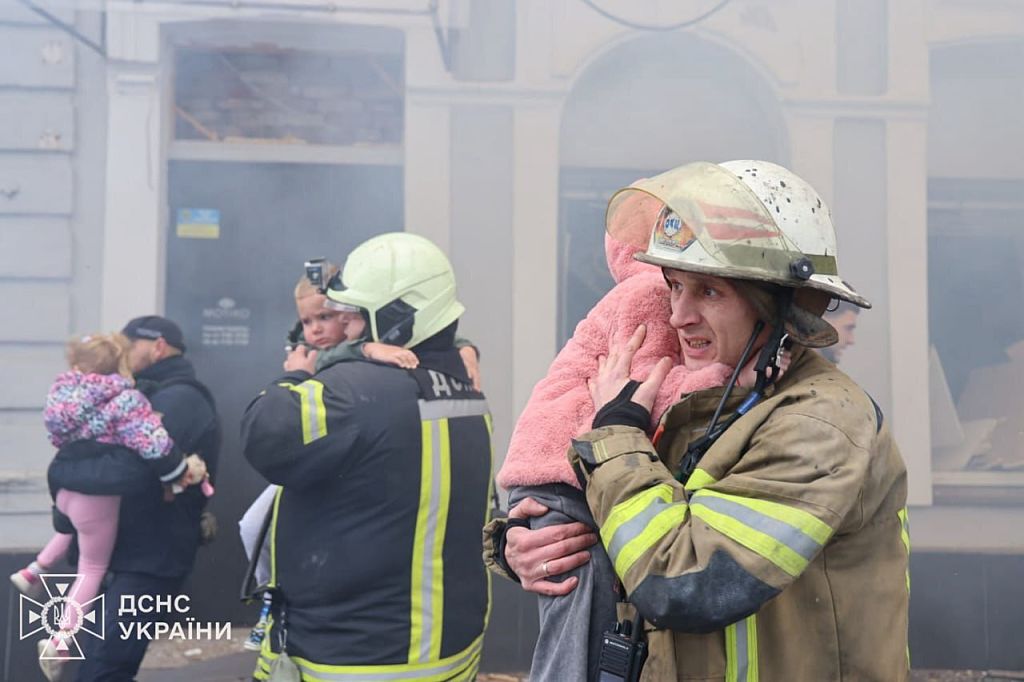Defense Secretary Lloyd Austin and Russian Defense Minister Sergei Shoigu haven’t really been on speaking terms. That is, until last weekend, when the two defense chiefs conversed with each other twice in three days.
The readouts released by the Defense Department are about as brief as brief can get. They don’t tell us much about what was said, other than the general observation that Austin, a former four-star army general, swatted away Moscow’s explanations for the war in Ukraine.
What the conversations illustrate more than anything is just how rare they’ve been. Indeed, the reason why so many news outlets wrote about the Austin-Shoigu calls was because they were extraordinary. This isn’t necessarily comforting, for when times are tough and tensions are high, dialogue is essential. Apparently, American and Russian officials have just gotten around to that realization.
Presidents Biden and Putin haven’t exchanged words since mid-February (although to his credit, Biden has intimated he’s willing to do so in order to get Americans like Brittney Griner and Paul Whelan out of a Russian prison cell). White House officials are scrambling to ensure the president doesn’t bump into Putin on the sidelines of the upcoming G20 summit, scheduled for next month in Indonesia. Secretary of State Antony Blinken and Foreign Minister Sergey Lavrov didn’t commiserate for five months. Generals Mark Milley and Valery Gerasimov, the top officers in the American and Russian military establishments respectively, had a similar five-month stretch where no calls were exchanged.
As far as the strategic stability negotiations President Biden wanted to sustain with the Russians earlier in his tenure, those are dead in the water. Washington suspended arms control talks the day after Russia’s invasion as a way to penalize Moscow for its violation of state sovereignty, and to send a quick message to Putin that his aggressive actions have consequences. Unfortunately, in this case, penalizing Russia also included a degree of self-harm. While nobody expected an arms control dialogue with Moscow to be easy — given Russia’s insistence that US anti-missile defenses as well as the development of more sophisticated weapons utilizing hypersonic technology should be a part of any negotiations, it’s more likely such talks would fail than succeed — the lack of a dialogue itself meant the two countries weren’t even testing the prospect.
For many elites in Washington, diplomacy with Putin is a waste of time at best and an act of legitimization at worst. Why, lawmakers on Capitol Hill ask, would the US even consider sitting down with the Russians as equals when those same Russians are killing innocents in missile attacks, hoping to freeze Ukrainians into submission as winter approaches, and committing war crimes against defenseless civilians? Why on earth would Washington consider giving Putin an off-ramp when he’s losing the war?
Such feelings are firmly entrenched in American foreign policy discourse. In many ways, they are understandable. Huddling with a despot who has blood on his hands is hard to swallow.
But international relations can be a morally tricky business. There are certain situations where what is morally right is also strategically unwise. Cutting off Russia at the knees and giving Putin’s cronies the permanent cold shoulder may be the morally satisfying thing to do, but nobody can argue with a straight face that such a course of action wouldn’t have consequences. Those who take the opposite view must explain why it’s smart for senior American officials to pretend Russia doesn’t exist or to dismiss pragmatic engagement as some kind of sop to the Kremlin.
US statesman of a different era certainly didn’t think this. When Henry Kissinger was on the phone with Soviet Ambassador Anatoly Dobrynin to keep the 1973 Israeli-Arab war from escalating into a great power conflict, relations between Washington and Moscow were warming but still roiled by an intense global rivalry driven by mutually incompatible objectives. When George Shultz was negotiating an arms control accord with the Soviets in the mid-1980s, US weapons were killing Soviet troops in Afghanistan and Moscow was providing the Sandinista government in Nicaragua with military support to resist and destroy the US-backed Contras.
The point is this: communication isn’t a gift to the other side. Nor is it a sign of weakness. It’s prudent and necessary, especially in times of stress. With three calls exchanged between American and Russian stakeholders in four days, perhaps pragmatism is finally prevailing.

























